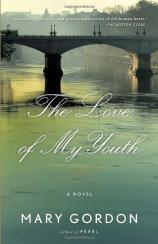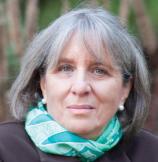Reading Group Guide
Discussion Questions
The Love of My Youth

1. The Love of My Youth is, from the title onward, a novel about age. Do Adam’s and Miranda’s experiences of youth and/or older age speak to your own? Do they ring true to the course of a life? “When you are young, [Miranda] thinks, you never believe that courage isn’t enough. That the imaginative, original decision isn’t always the right one” [p. 16]. How does the idea of choice play into their actions as teenagers and then at the end of the story, when they separately decide not to become lovers again?
2. Have you been to Rome? Do Gordon’s descriptions of the piazzas and museums, the artwork and puppet theater, the poor beggars and the upscale restaurants reflect your memories of the city? How does having the main characters walk around the city help you experience it? How do you think the landscape and the food (“the vivid flavors, spicy tomato, peppery meat and beans, bitter greens drenched in salty fish and vinegar and oil” [p. 81]) fit into Adam’s and Miranda’s ideas about beauty, especially in comparison to their different views on artists such as Bernini?
3. Do Adam and Miranda’s discussions ring true to their characters? Why do you think Gordon chose to structure the novel in this way, focusing on their conversations, and then including flashbacks to the years of their youth? What do you make of Miranda’s statement that it “excites her to be speaking this way, a way she no longer speaks” [p. 140]? Do you think there is a language you share with your first love that is different from any subsequent relationship?
4. This is a novel of firsts --- first loves and first endings. The phrase “the first” arises frequently, including “for the first time she considers the possibility that she might wish he were other than he is” [p. 188], and, regarding Beverly’s attentions to Adam, “the first thing he has been reluctant to talk about to Miranda” [p. 202]. What other firsts take place in the novel, and how do they drive the narrative? What do they say about how we come to know ourselves and experience another person?
5. In what ways does Gordon bring to life the novel’s two time periods: 1964¬¬–1970 and then 2007? Is one era more alive on the page or are they equally successful at illuminating Adam’s and Miranda’s pasts and presents, as individuals within a generation at the forefront of so many changes?
6. With the exception of the opening, Gordon titles each contemporary chapter with the date, place(s), and a quote. Why do you think she choose this format? Does it act to enrich or distract from your experience of the narrative? Why do you think a quote from Miranda almost always heads the chapters?
7. Do you find meaning in the fact that Adam’s name exists in the reverse spelling of Miranda’s? Adam is, of course, the name of the first man in the Bible, his story beginning before he and Eve taste of the Tree of Knowledge. Do you think Adam’s name fits his character and, if so, in what ways?
8. Questions of self-identity play a fundamental role in the novel. Miranda asks, “Are we fated to always be the people we were? Always making the same mistakes?” [p. 29] and then, at a different moment, wonders “Is this the most important thing that can be said about us, that we are not who we were?” [p. 64]. Perhaps as a way of combining these ideas, she also says that she is “someone to whom, like [Adam], a great many things have happened. So the person I am was the one I was and also another person, perhaps many other persons” [p. 154]. What is Gordon saying about how well we can know ourselves? How is that related to our ability to deeply understand another person? Did Adam and Miranda truly know each other when they were young? Do they see each other, and themselves, more clearly now that they are older? Do you feel you have a confident grasp on your own identity, or do you feel it shifting through the years?
9. In what ways do Adam and Miranda experience the past --- is it an ever-present aspect in either of their lives, or does it seem that they don’t often think of it? How do their ideas relate to Yonatan’s, who lets the past go (except for what he cannot escape, his nightmares of the ‘67 war), and Clare, who is perhaps too young to have a past long enough to focus on or forget? 10. Adam and Miranda discuss money much less directly than other topics, though its absence or presence has greatly affected their lives. Miranda has always had money, though it’s unclear if she realizes where her money came from, and how much there is (Adam wonders if she knows it was her mother’s inheritance, not her father’s business acumen). For Adam, money is always a worry --- from his youth, when the family tried to keep the cost of his music lessons from him, continuing throughout his life as a teacher and father. What do you see as the role of money in Adam’s and Miranda’s lives separately and when they were together?
11. Spend some time discussing Adam’s and Miranda’s marriages and families, both their families of birth and the ones they have created. Was Miranda fair to her parents, in keeping her distance from them? Why did she feel much closer to Adam’s mother than her own? What does it mean that one of the reasons she married Yonatan was because he was so unlike Adam? Is the same true for Adam, in regard to both Beverly and Clare? What do you think about him having known Clare since she was thirteen? What parts do Adam’s and Miranda’s children, all four of them, and their siblings, Rob and Jo, play in the narrative?
12. Regret is a running thread throughout the novel. Do you think Adam and Miranda feel equal regret for their actions? What do you make of the section in which Miranda says “In order to have had the children we have, we had to lead our lives exactly as we did. Therefore, there can be no regrets” [p. 283] and Adam responds in part by asking “Would it have been better if my son had not been born?” [p. 285]. As someone with or without children, how would you react to their discussion?
13. Adam slept with Beverly twice and believed she was on birth control. Miranda slept with Toby and never told Adam. Adam’s betrayal is assumed by both to be much greater. Why is that the case? Do you believe Miranda when she thinks, but does not say, “I too am guilty of lying, by omission” [p. 232]? Does Miranda believe that she has betrayed Adam? Do their actions bear greater weight because they were each other’s first sexual relationship? When Miranda sleeps with Toby, is the greater betrayal the infidelity of the body or the emotional infidelity of the secret? For Adam, was he betrayed equally by Beverly, or should he assume all responsibility for her pregnancy? What do you make of the scene in which Miranda cuts off her hair, and Adam feels betrayed? “What have you done to me?” [p. 272] Adam asks, to which Miranda replies with the voice of a generation, “To you? I thought it was my hair. My body” [p. 272].
14. Miranda remarks that “forgiveness is irrelevant now because the pain he caused her is long gone and, painless, forgiveness is not difficult, therefore perhaps not worth much” [p. 41]. When considering how she has hurt other people, Miranda says, “We can forgive those who trespass against us. We can’t forgive those we’ve trespassed against” [p. 213]. What does it mean to forgive someone? Is there a need to forgive one’s self? What do you make of Adam’s dismissal of Miranda’s confession that she slept with Toby? “Me? I forgive you? It is I who need forgiveness” [p. 291]. Do you think that Miranda truly forgives Adam? Does Adam forgive himself?
15. Miranda has converted to Judaism, while Adam stays an unbelieving Catholic --- “I don’t have it, the ear for faith” [p. 228] --- though as a teenager he believed that sleeping with Miranda put him in a state of sin. Is faith an active element in either Adam’s or Miranda’s life? Is it perhaps expressed not through religious faith, but through their perspectives on the purpose of their lives? Or through some other outlet?
16. Adam’s and Miranda’s definitions of what constitutes an ethical and worthy life are different --- his music, her saving the world --- a divide that began in their youth, and remains their guide to how they see the world. Levi says to Adam, “The question must be not only why do we live but what do we live for? And one of the most important answers, Adam, you must believe me about this, is for beauty. For beauty whose greatness goes on and on” [p. 183]. Adam believes that his musical gift is the way in which he must “make some kind of mark” [p. 52], to “create beauty” [p. 83], while Miranda wants to “relieve suffering” [p. 83]. In the end, Adam “has not achieved fame, success, even, but he has not given over his calling” [p. 9]. Do you think Miranda feels the same way about her work? Does either of them deeply value what the other does, or even understand the other’s work? What is your own definition of a worthy life, and in what ways has that question helped direct your life choices?
17. Do you recognize yourself in any of the characters, particularly with regards to Adam and Miranda, and their spouses, children, or parents? If so, in what ways are you similar, and to what extent do you differ?
18. Adam and Miranda discuss ideas of belief, age, self-identity, beauty, and what it means to live a moral life, among other issues. Gordon is an author who covers these concepts in compelling and complicated ways, in both her fiction and nonfiction. Have you read any of her other books? How do themes of faith, family, love, and redemption operate here and elsewhere in her work?
19. The final words in the novel are Adam’s, as he mirrors Miranda’s about being grateful to “These trees. This light” [p. 306]. Those images, based in the natural world, refer in part to two losses --- Miranda’s father, her estrangement from him and the way she is able to miss him through the trees he taught her to name; and Adam’s loss of Beverly, or perhaps more truthfully, Beverly’s inability to exist in the world (her suicide note: “it’s too dark for me” [p. 287]). Why do you think Gordon chose to close The Love of My Youth with these words, and a focus on gratefulness? What was your emotional experience of these final lines, and of the novel as a whole?
The Love of My Youth
- Publication Date: April 3, 2012
- Genres: Fiction
- Paperback: 320 pages
- Publisher: Anchor
- ISBN-10: 0307390322
- ISBN-13: 9780307390325








